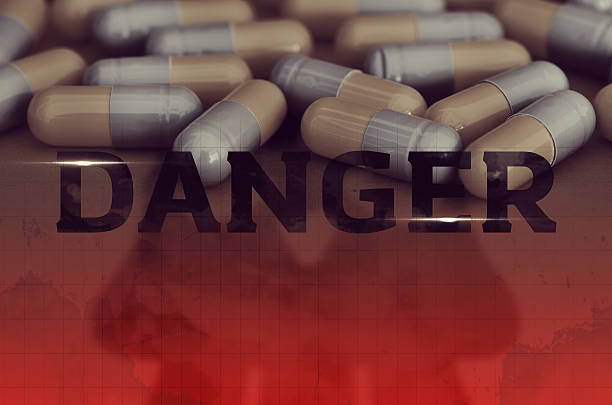Table of Contents
ToggleIn today’s digital age, effective marketing is crucial for any business, and the drug rehabilitation industry is no exception. With the increasing number of people seeking help for addiction and the rise of digital platforms, drug rehab centers must leverage digital marketing strategies to reach and engage their target audience. This article explores the essential aspects of drug rehab digital marketing, including key strategies, tools, and best practices to help rehab centers enhance their online presence, attract potential clients, and ultimately, achieve their goals.
Understanding Drug Rehab Digital Marketing
Drug rehab digital marketing involves using various online platforms and strategies to promote drug rehabilitation centers and their services. The goal is to increase visibility, build trust, and drive potential clients to seek help. Digital marketing encompasses a range of activities, including search engine optimization (SEO), content marketing, social media marketing, pay-per-click (PPC) advertising, email marketing, and more.
Key Strategies for Drug Rehab Digital Marketing
- Search Engine Optimization (SEO)
SEO is a fundamental strategy for improving a rehab center’s visibility in search engine results. By optimizing your website and content for relevant keywords, you can increase your chances of ranking higher in search results, making it easier for potential clients to find you.
- Keyword Research: Identify keywords that potential clients are searching for, such as “drug rehab,” “addiction treatment,” and “substance abuse help.” Use tools like Google Keyword Planner and Ahrefs to find high-volume, low-competition keywords.
- On-Page SEO: Optimize your website’s pages by including relevant keywords in titles, meta descriptions, headers, and body text. Ensure that your website is mobile-friendly and has a fast loading speed.
- Content Creation: Develop high-quality, informative content that addresses the needs and concerns of your target audience. This could include blog posts, articles, and guides on addiction treatment, recovery tips, and success stories.
- Local SEO: Optimize your website for local search by creating a Google My Business profile and including location-based keywords. This helps potential clients in your area find your rehab center more easily.
- Content Marketing
Content marketing involves creating and sharing valuable content to attract and engage your target audience. For drug rehab centers, this means providing information and resources that help individuals understand addiction, treatment options, and recovery processes.
- Blogging: Regularly update your blog with informative and engaging posts. Topics could include signs of addiction, benefits of different treatment approaches, and personal stories of recovery.
- E-books and Guides: Create comprehensive e-books or guides that provide in-depth information on specific aspects of addiction and recovery. Offer these resources as downloadable content on your website to capture leads.
- Video Content: Develop video content that showcases your rehab center’s facilities, staff, and treatment programs. Testimonials from former clients can also be powerful in building trust and credibility.
- Social Media Marketing
Social media platforms are an effective way to connect with potential clients and build a community around your rehab center.
- Platform Selection: Choose the social media platforms that are most relevant to your target audience. For drug rehab centers, platforms like Facebook, Instagram, and LinkedIn can be particularly effective.
- Content Sharing: Share a mix of content, including educational posts, success stories, and updates about your rehab center. Engage with your audience by responding to comments and messages promptly.
- Paid Advertising: Use social media advertising to target specific demographics and reach individuals who may be seeking help for addiction. Platforms like Facebook and Instagram offer detailed targeting options that can help you reach your ideal audience.
- Pay-Per-Click (PPC) Advertising
PPC advertising allows you to place ads on search engines and social media platforms, driving traffic to your website. You only pay when someone clicks on your ad, making it a cost-effective way to attract potential clients.
- Google Ads: Create targeted ads that appear in search results when users search for relevant keywords. Use ad extensions to provide additional information and encourage users to click.
- Social Media Ads: Run targeted ads on platforms like Facebook and Instagram to reach users who may be interested in drug rehab services. Use eye-catching visuals and compelling ad copy to attract attention.
- Email Marketing
Email marketing is a powerful tool for nurturing leads and maintaining relationships with potential clients.
- Email List Building: Collect email addresses through your website, social media, and other channels. Offer valuable resources, such as e-books or newsletters, in exchange for email sign-ups.
- Personalized Campaigns: Create personalized email campaigns that provide relevant information and resources based on the recipient’s interests and needs.
- Follow-Up Sequences: Develop automated follow-up sequences to stay in touch with potential clients and encourage them to take the next step in seeking help.
- Online Reviews and Reputation Management
Online reviews and your center’s reputation play a crucial role in attracting potential clients. Positive reviews build trust and credibility, while negative reviews can deter individuals from seeking help.
- Encourage Reviews: Ask satisfied clients to leave positive reviews on platforms like Google, Yelp, and Facebook. Make it easy for them by providing links and clear instructions.
- Monitor Reviews: Regularly monitor reviews and respond to both positive and negative feedback. Address any concerns or complaints promptly and professionally.
- Build a Positive Reputation: Focus on providing exceptional care and support to build a positive reputation within your community and online.
- Analytics and Performance Tracking
To ensure the effectiveness of your digital marketing efforts, it’s essential to track and analyze your performance.
- Google Analytics: Use Google Analytics to monitor website traffic, user behavior, and conversion rates. This data can help you understand which strategies are working and where improvements are needed.
- Social Media Insights: Analyze the performance of your social media posts and ads using platform-specific insights. Track metrics such as engagement, reach, and click-through rates to gauge success.
- PPC Analytics: Review the performance of your PPC campaigns, including click-through rates, conversion rates, and cost-per-click. Adjust your strategies based on this data to optimize your ad spend.
Best Practices for Drug Rehab Digital Marketing
- Compliance and Ethics
In the drug rehab industry, it’s crucial to adhere to ethical and legal standards in your marketing efforts. Ensure that all content is accurate, respectful, and does not make false claims or promises. Comply with regulations related to advertising and patient privacy.
- Clear and Compassionate Messaging
When creating content and advertisements, use clear and compassionate messaging that addresses the challenges faced by individuals struggling with addiction. Avoid stigmatizing language and focus on providing support and hope.
- Focus on User Experience
Ensure that your website and digital platforms offer a positive user experience. This includes having a user-friendly design, easy navigation, and fast loading times. Make it easy for potential clients to find the information they need and take action.
- Invest in Professional Help
Digital marketing can be complex, and it’s often beneficial to invest in professional help. Consider working with digital marketing experts who specialize in the drug rehab industry to develop and implement effective strategies.
- Stay Updated with Industry Trends
The digital marketing landscape is constantly evolving, and it’s important to stay updated with the latest trends and best practices. Regularly review and adjust your strategies to keep up with changes and maintain a competitive edge.
Conclusion
Drug rehab digital marketing is a critical component of attracting and engaging potential clients in today’s online-driven world. By implementing effective strategies such as SEO, content marketing, social media marketing, PPC advertising, and email marketing, drug rehab centers can enhance their online presence and reach individuals seeking help for addiction. Adhering to best practices and staying updated with industry trends will ensure that your digital marketing efforts are both ethical and successful. As the digital landscape continues to evolve, embracing innovative approaches and leveraging the power of digital marketing will be key to achieving your goals and making a positive impact in the lives of those in need of rehabilitation services.




